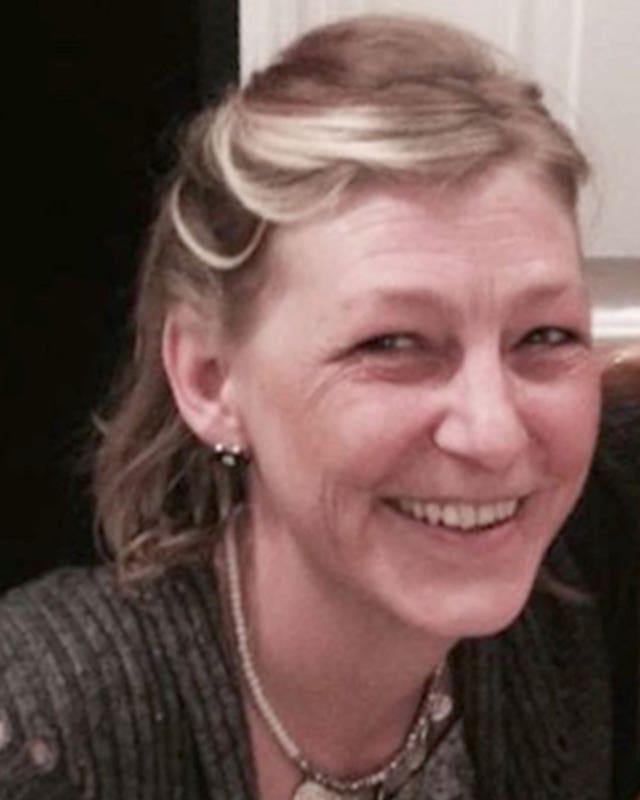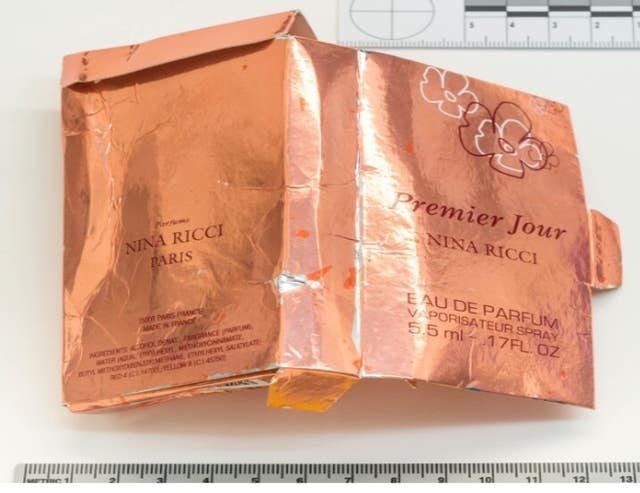Paramedics who attended to Charlie Rowley after his Novichok poisoning formed a view he was suffering from nerve agent poisoning, but there was a different opinion from police officers, the Dawn Sturgess Inquiry has heard.
Andrew O’Connor KC, counsel to the inquiry, said that police officers did not accept the view of the paramedics.
He said the paramedics who attended Mr Rowley “did form the view that he was suffering from nerve agent poison, but there was then a difference of opinion with police officers who attended. And in very brief summary, the police officers did not accept the diagnosis, the views of the paramedics, and proceeded essentially on the basis that they were content that this was an opiate poisoning, and there were various steps that followed as a result”.
Dawn Sturgess, 44, died after she was exposed to the chemical weapon, which was left in a discarded perfume bottle in Amesbury, Wiltshire, in July 2018.
It followed the attempted murders of former spy Sergei Skripal, his daughter Yulia and then-police officer Nick Bailey, who were poisoned in nearby Salisbury in March that year.

Mr O’Connor asked Wayne Darch, deputy director of operations at South Western Ambulance Service NHS Foundation Trust (SWASFT), if it happens often that other emergency services override the clinical views of paramedics, with Mr Darch saying: “It is possible, but in my experience not frequent.”
Asked, knowing what he knows about that night, if he thinks it was reasonable, Mr Darch said: “From my perspective, I think it’s evident that there was a breakdown in the application of the JESIP (the joint emergency services interoperability principles) which essentially are where you have a multi-agency response to an incident, the three blue light services in particular should co-locate, they should communicate, which allows them then to jointly co-ordinate the response, having a shared situational awareness and a joint understanding of the risk, which allows the multi-agency partnership to develop a joint plan to respond to the circumstances that they’re facing.”
The ambulance service told the police communications centre that Mr Rowley was presenting with similar symptoms as the Salisbury incident, Mr O’Connor said, when reading a witness statement from the Deputy Chief Constable of Wiltshire Police, Paul Mills.
The force incident manager that evening, Inspector Andy Noble, “formed the opinion that this incident was most likely owing to drugs”, Mr O’Connor said while reading the statement.
This followed a background search on the address which revealed recent intelligence relating to drugs connected to the occupant of the property, the inquiry heard.
Mr Mills said the police officers were “overly confident”, but added: “I don’t believe it was wrong for them to have a hypothesis, based upon the recent intelligence that they were aware of, through the single lens of the police service in Wiltshire, that this potentially could have been a drugs-related incident.
“However, applying JESIP, if we look back at the principles, back to the blue light huddle, they needed to communicate with their fellow first responders to understand what was the other information and intelligence which was available.”
The inquiry was also told by Mr O’Connor that paramedics who were treating Ms Sturgess earlier the same day were told by Mr Rowley that she did not take drugs, which was inconsistent with the views they were forming, because they were working on this basis it could be an opiate poisoning case.

He said there were “reasons to suspect that she may have become unwell due to her association with drugs”, but added there was “no police intelligence that she was a drug user”.
Meanwhile, Mr Skripal and his daughter were assessed by ambulance crews to be suffering from an opiate overdose after their poisoning from Novichok, Mr O’Connor said.
Mr O’Connor then said the Skripals were showing symptoms which broadly speaking were consistent with both nerve agent poisoning or organophosphate poisoning and an opiate overdose, for example respiratory collapse and miosis, which Mr Darch said was correct.
The lawyer said the Skripals were also suffering “excess secretions – salivation, foaming at the mouth”, which is often referred to as a symptom “which is a distinguishing point because it is a symptom of organophosphate poisoning but not seen with opiate overdose”, and Mr Darch also said that was correct.
Asked by Mr O’Connor about the rarity of organophosphate/nerve agent poisoning, Mr Darch said: “A number of our clinicians will go a whole career without witnessing or attending a organophosphate or nerve agent poisoning, whether accidental or deliberately.
“In contrast to that, our clinicians will regularly attend opiate overdoses.”
Asked by the chairman Lord Hughes if there has ever been a nerve agent poisoning experience in this country, Mr Darch added: “Not that’s recorded since the Second World War, as far as I understand it.”
Lord Hughes said he brackets it with organophosphate poisoning, which he said is essentially fertilisers, and Mr Darch added that organophosphate poisoning happens “occasionally but extremely rare”.
The inquiry continues.






